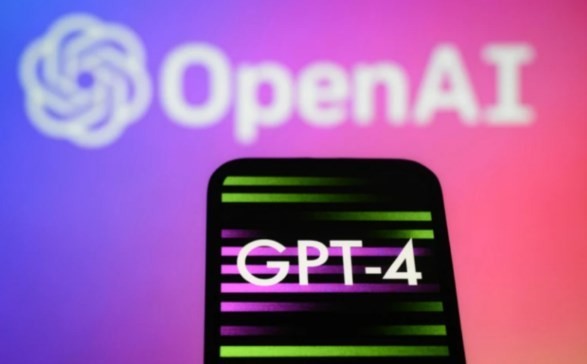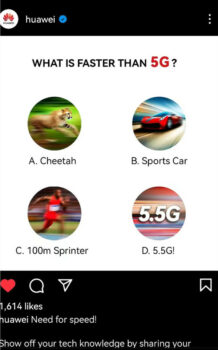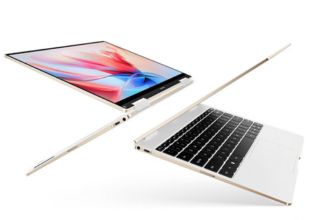Huawei recently teased the arrival of 5.5G technology, claiming it surpasses 5G in speed and performance. Meanwhile, Apple is reportedly planning to introduce the Lingdong Island design to future Macs, transforming their desktop experience. Additionally, OpenAI is exploring the development of its own AI chips, and Baidu has announced a leadership change at Xiaodu Technology.

Huawei Takes the Lead in 5.5G Innovation
Huawei recently posted on its overseas social platforms, asking: “What is faster than 5G?” The options included Cheetah, Schedule, Sprinter, and 5.5G, with the answer being 5.5G. Although the company has yet to confirm whether the Mate60 series supports 5G, this message strongly hints that the device may utilize 5.5G technology for significantly improved network speeds.
Huawei has been making strides in 5.5G for quite some time. On September 11, the company completed all 5G-A functional test cases, achieving a breakthrough in ultra-large bandwidth testing with 5CC carrier aggregation. The company also pioneered multi-carrier scheduling solutions, leading to improved connectivity.
5.5G, or 5G-Advanced, is expected to offer speeds up to 10 times faster than existing 5G networks. Additionally, connection density, positioning accuracy, and energy efficiency are all projected to be 10 times higher. This advancement highlights Huawei’s commitment to pushing the boundaries of mobile connectivity.

Apple’s Lingdong Island Design May Redefine Mac Interaction
A well-known digital blogger recently revealed that future Macs may adopt the Apple Lingdong Island design, a feature first introduced in the iPhone 14 series. This design integrates an interactive area above the screen to display notifications, calls, and music controls, enhancing user experience.
The introduction of Lingdong Island to Macs could significantly change desktop aesthetics and functionality. While this transformation is expected to boost interactivity and convenience, the iPad is notably absent from these changes, according to sources. If implemented, this design shift will mark a major step in Apple’s desktop evolution.
OpenAI Plans to Develop AI Chips Amid Industry Bottlenecks
According to insiders, OpenAI has been evaluating various solutions to counter the ongoing AI chip shortage. Since last year, the company has explored multiple strategies, including developing in-house AI chips, strengthening collaborations with manufacturers like Nvidia, and diversifying its supply chain.
AI chips, often referred to as AI accelerators, play a crucial role in training and running advanced generative AI models like ChatGPT. Given that Nvidia currently dominates over 80% of the AI chip market, OpenAI is looking to reduce dependency and secure its technological future. If OpenAI moves forward with its AI chip production, it could reshape the competitive landscape in artificial intelligence.

Baidu Appoints Li Ying as CEO of Xiaodu Technology
On October 7, Baidu announced a major leadership change at Xiaodu Technology. Baidu’s Chief Information Officer (CIO), Li Ying, will take over as CEO of Xiaodu Technology, reporting directly to Baidu Chairman and CEO Robin Li. The previous CEO, Jing Kun, is stepping down for personal reasons.
Li Ying, one of Baidu’s early employees, has played a pivotal role in AI technology development. Since joining the company in 2004, she has led various departments, including natural language processing, search algorithms, knowledge graphs, and AI ecosystems. She holds over 30 patents and has received top honors in AI research and development. Her leadership at Xiaodu Technology is expected to drive further innovation in AI-powered devices and services.

Conclusion
Huawei’s push for 5.5G technology showcases its commitment to next-generation connectivity, while Apple’s rumored Lingdong Island design for Macs could redefine desktop interaction. Meanwhile, OpenAI’s potential move into AI chip development signals a strategic shift in the industry. Lastly, Baidu’s leadership change at Xiaodu Technology highlights the company’s focus on AI innovation. As these tech giants evolve, users can expect groundbreaking advancements in mobile networks, computing, and artificial intelligence.







